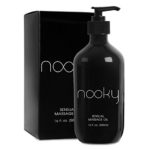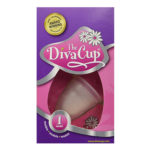
This month marks the 30th anniversary of the Merchant-Ivory production, A Room with a View, which won an Oscar for best adapted screenplay in 1985 (along with best art direction and costume design) and introduced many of us to the possibility that mainstream movies could, in fact, have full frontal male nudity. Based on the 1908 novel by E.M Forster, it follows Lucy Honeychurch (a young Helena Bonham Carter) as she travels abroad to Italy and back home to England, as she denies her heart and resists the unorthodox advances of free thinker George Emerson (played by Julian Sands before he ruined everything with Boxing Helena) — perhaps not a ringing endorsement for taking women at their word about their own desires and preferences. But when taken in the context of the time it was written, along with the full confidence that we know Lucy’s true inclinations (even if she’s not yet permitted in uptight British society to admit them to herself), A Room with a View actually promotes the idea of women having the freedom to think their own thoughts and follow their own hearts, tradition and good manners be damned. We dare you to (re)watch it and not swoon a little.
Below are some of the best — and most romantic — moments in the film in chronological order, collated from IMDB and this copy of the screenplay:
Mr. Beebee (local English reverend): May I say something – rather daring?
Lucy: Oh, Mr. Beebee: you sound like Miss Lavish. Don’t say you are writing a novel, too.
Mr. Beebee: If I were, you should be my heroine and I would write: “If Miss Honeychurch ever takes to live as she plays, it will be very exciting – both for us and for her.”
Mr. Emerson (George’s fathter): I don’t require you to fall in love with my boy, but try and understand him. My poor young lady, I think you’re muddled, too — you’ve let other people muddle you.
Lucy: Is that what’s happened to him? Has he let other people –
Mr. Emerson: No, in his case he’s done it himself – with all this brooding on the things of the Universe. I don’t believe in this world sorrow. Do you?
Lucy: No. Oh no. I don’t, Mr. Emerson. Not at all.
Mr. Emerson: Well there you are! Then make my boy realize that by the side of the everlasting Why there is a yes! And a Yes and a Yes!
After witnessing a murder in a piazza together and George catching Lucy in a faint:
Lucy: How quickly these accidents do happen and then one returns to the old life.
George: I don’t. I mean, something’s happened to me… and to you.
Miss Lavish: …I have a theory that there is something in the Italian landscape which inclines even the most stolid nature to romance.
From the screenplay:
COACHMAN stops to pick some violets and presents them to LUCY. She takes them with real pleasure. They walk on. The view is forming — LUCY sees the river, the golden plain, other hills.
Coachman: Eccolo!
Lucy gives a cry — the ground has given way and she falls on to a little terrace, covered with violets from end to end. It is like a sea of violets, foaming down the hillside.
Standing on the brink of this sea, like a swimmer about to five, is Geoge.
Georg contemplates Lucy – who appears to have fallen out of heaven into this sea of violets which beats against her dress in blue waves.
The Coachman watches them from behind the bushes, a violet between his teeth.
George steps forward quickly and kisses Lucy (on the cheek).
[In the movie, there are no violets, the coachman is silent, he simply points to where she’ll find George contemplating the landscape, she approaches, doesn’t fall, George notices her, and briskly walks up to her, grabs her face with one hand, wraps the other arm around her and plants one long kiss squarely on her lips. Still, the screenplay description is quite beautiful to imagine.]
Mr. Beebee: Does it seem reasonable to you that she should play so wonderfully — play Beethoven with such passion — and yet live so quietly? … I suspect that the day will come when music and life will mingle, and then she will be wonderful in both.
Freddy Honeychurch (Lucy’s brother): How d’ye do? Come and have a bathe.
George Emerson: I’d like that.
Reverend Beebe: [laughs] That’s the best conversational opening I’ve ever heard. “How do you do? Come and have a bathe.”
George Emerson (to Lucy): He’s the sort who can’t know anyone intimately, least of all a woman. He doesn’t know what a woman is. He wants you for a possession, something to look at, like a painting or an ivory box. Something to own and to display. He doesn’t want you to be real, and to think and to live. He doesn’t love you. But I love you. I want you to have your own thoughts and ideas and feelings, even when I hold you in my arms.
Mr. Emerson: You love George. You love the boy body and soul, as he loves you.
Lucy Honeychurch: [crying] But of course I do. What did you all think?
















